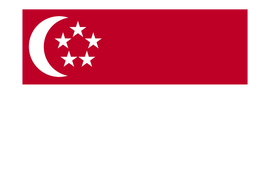U.S. Finds China-Origin Steel Pipes Shipped from Oman Circumvent Trade Orders
Estimated reading time: 6–10 minutes
The U.S. Department of Commerce has announced a preliminary decision in an important trade case. Imports of circular welded carbon quality steel pipes (CWP) made in the Sultanate of Oman, using hot-rolled steel (HRS) from the People’s Republic of China, are found to be avoiding U.S. antidumping duty (AD) and countervailing duty (CVD) orders on steel pipe from China. This is called “circumventing the Orders.”
Background of the Case
Commerce put AD and CVD orders on CWP from China in July 2008. On November 19, 2024, Commerce began investigating whether CWP shipped from Oman to the U.S., but made with steel from China, was actually covered by the existing trade Orders.
Al Jazeera Steel Products Company SAOG in Oman was chosen as the main respondent for this investigation. The deadline for the preliminary decision was extended to July 17, 2025.
Products Covered
The products discussed are circular welded carbon quality steel pipes and tubes, which are widely used in building and industry. Pipes completed in Oman, using steel produced in China, and then sent to the U.S., are the subject of this investigation.
How the Determination was Made
Commerce used Section 781(b) of the Tariff Act of 1930 and other rules for its investigation.
Preliminary Decision
Commerce has preliminarily decided that CWP made in Oman using Chinese-origin HRS, and then sent to the U.S., is circumventing U.S. AD and CVD Orders. This means these pipe imports will now be treated as if they came from China when it comes to trade rules.
Suspension of Liquidation and Cash Deposits
Because of this decision, Customs and Border Protection (CBP) will now “suspend liquidation” of these products. This means they will not finish processing these imports for duty payments right away. Companies must also pay cash deposits as security for estimated trade duties for shipments that came in on or after November 19, 2024.
If the CWP is made in Oman with non-Chinese HRS, it is not covered by this decision. If the certifications (explained below) are met, no cash deposit or suspension is required.
If certifications are missing or wrong, CBP will take action. AD cash deposits may be set at up to 85.55 percent and CVD cash deposits at 39.01 percent.
Special case numbers have been created in the Automated Commercial Environment (ACE) for this trade issue.
Certification Requirements
To follow the new rules, importers and exporters must complete special certifications for each shipment. These documents prove that the pipes do not use Chinese HRS, or that another input was used.
Importers must upload their certification, the exporter’s certification, invoices, and shipping paperwork into CBP’s document system at the time of entry summary.
Exporters also fill out and keep their certification. They must give the importer a copy.
Claims in the certifications, and any supporting documents, can be checked by Commerce or CBP. All records must be kept for at least five years, or three years after any court case about the entries finishes.
For shipments between November 19, 2024, and August 13, 2025, where entries are not yet final, certifications must be finished and uploaded no later than September 8, 2025. Blanket certifications covering several shipments are allowed.
Shipments declared without recognizing the AD or CVD case numbers must have their status corrected with CBP and pay any owed duties.
Comments and Hearings
Interested parties have seven days after the last verification report to submit case briefs. They may also submit rebuttal briefs five days later. Briefs should include a summary and a table of authorities.
Hearing requests must be filed within 30 days of the notice. If held, the hearing will only discuss issues listed in the briefs.
International Trade Commission Notification
Commerce will notify the U.S. International Trade Commission (ITC) about this decision. The ITC can ask questions or request a meeting within 60 days. If the ITC finds that including these imports would be a significant injury issue, it can provide written advice.
Certifications Details
There are official forms for both importers and exporters. The certifications require detailed information about the shipment, the steel’s origin, and a sworn statement that no Chinese HRS was used if claiming an exemption. Both must keep all documents, and it is a crime to make false statements.
What’s Next
This is a preliminary decision. Commerce may verify the information before making a final decision. The rules will stay in effect until Commerce announces otherwise.
Official Contact
For more information, the notice was prepared by Shawn Gregor, Office of Policy, Enforcement and Compliance, International Trade Administration, U.S. Department of Commerce.
Legal Disclaimer
This article includes content collected from the Federal Register (federalregister.gov). The content is not an official government publication. This article is for informational purposes only and does not constitute legal advice. For case-specific consultation, please contact us. Read our full Legal Disclaimer, which also includes information on translation accuracy.








